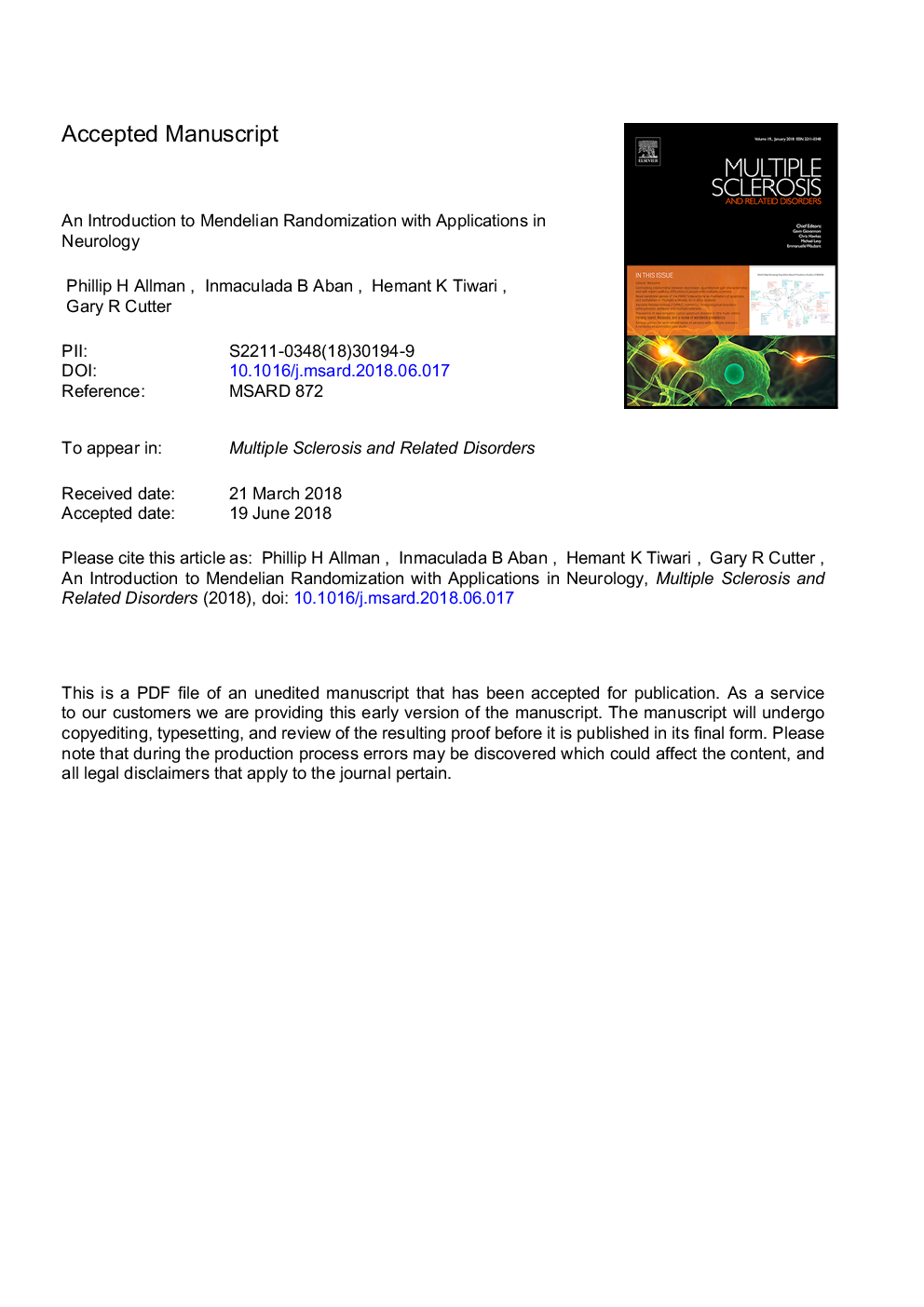| Article ID | Journal | Published Year | Pages | File Type |
|---|---|---|---|---|
| 8647247 | Multiple Sclerosis and Related Disorders | 2018 | 21 Pages |
Abstract
Mendelian randomization studies have become increasingly common due to the maturation of genome-wide association studies and its potential to ascertain causal relationships. With the increasing use of this method comes the need for medical practitioners and clinicians to develop an understanding of its rationale, limitations, and interpretation. Mendelian randomization attempts to ascertain a causal relationship between some risk factor of interest and some outcome or disease of interest. It exploits Mendel's law on the random assortment of genetic variants. This random assortment of genetic variants mimics the main principle of randomization used in clinical trials; with the genetic variant replacing the randomly allocated treatment. In this paper we provide a readable introduction to the rationale behind Mendelian randomization and its limitations. We also discuss and interpret several examples of Mendelian randomization analyses which pertain to neurological diseases.
Related Topics
Life Sciences
Biochemistry, Genetics and Molecular Biology
Genetics
Authors
Phillip H. Allman, Inmaculada B. Aban, Hemant K. Tiwari, Gary R. Cutter,
